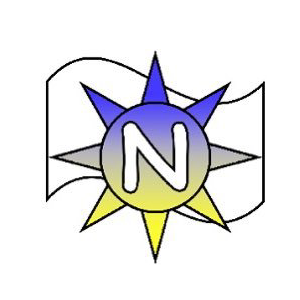SCIENCE AT NORTHWAY
At Northway, we aim to:
- equip our children with the scientific knowledge required to understand the uses and implications of science, today and for the future.
- deliver a science curriculum which gives our children a strong understanding of the world around them.
- develop children’s understanding of science through enquiries that help them to answer scientific questions about the world around them, ensuring the skills of working scientifically skills are developed year on year.
- provide opportunities for children to acquire specific skills and knowledge to help them think scientifically and gain an understanding of scientific processes.
Our work in Science enables our pupils to develop:
- Communication skills
- Cooperation
- Respect for the world around us.
Science is taught largely through exploring, investigating, talking and questioning. A range of resources are used to support the teaching of Science across all of the different areas. Key questions are planned and used to direct and structure children’s thinking and understanding in Science.
Science lessons are adapted to meet the needs of individual learners ensuring that opportunities are planned for children to develop their own lines of enquiries. Key concepts and knowledge that should be taught are mapped out across the school to ensure that teachers understand what has been learnt previously and to ensure progression across the individual strands of the science curriculum.
Working scientifically skills are embedded into lessons to ensure that these skills are being developed year on year. Teachers demonstrate how to use scientific equipment and the various working scientific skills in order to embed scientific understanding. Teachers find opportunities to develop children’s understanding of their surroundings by accessing outdoor learning.
EYFS
In EYFS, children will begin to understand Science through their work within the specific area of learning: ‘Understanding of the World’. The children will work towards the Early Learning Goal of ‘The Natural World’ where they will look at the world within their immediate locality, making observations and drawing pictures of animals and plants. They will learn to know some similarities and differences between the natural world around them and contrasting environments, drawing on their experiences and what we read about in class in non-fiction texts. They will also understand some important processes and changes in the natural world including the seasons and changing states of matter. This understanding lays a foundation for children to develop their scientific ability as they move throughout the school.
KS1
In Years 1 and 2, science teaching provides children with scientific knowledge to allow them to further their curiosity about the world around them. They are encouraged to be ask questions about what they notice. They are helped to develop their understanding of scientific ideas by using different types of scientific enquiry to answer their own questions, including observing changes over a period of time, noticing patterns, grouping and classifying things, carrying out simple comparative tests, and finding things out using secondary sources of information. They begin to use simple scientific language to talk about what they have found out and communicate their ideas to a range of audiences in a variety of ways. Learning about Science is done through the use of first-hand practical experiences, and there is also some use of appropriate secondary sources, such as books, photographs and videos. ‘Working scientifically’ is taught throughout all Science topics. The skills are embedded into lessons to ensure that they are being developed year on year.
KS2
Lower Key Stage 2
In Years 3 and 4, science teaching enables pupils to broaden their scientific knowledge of the world around them. They do this through exploring, talking about, testing and developing ideas about everyday phenomena and the relationships between living things and familiar environments, and by beginning to develop their ideas about functions, relationships and interactions. They ask their own questions about what they observe and make some decisions about which types of scientific enquiry are likely to be the best ways of answering them, including observing changes over time, noticing patterns, grouping and classifying things, carrying out simple comparative and fair tests and finding things out using secondary sources of information. They draw simple conclusions and use some scientific language, first, to talk about and, later, to write about what they have found out. ‘Working scientifically’ is taught throughout all Science topics. The skills are embedded into lessons to ensure that they are being developed year on year.
Upper Key Stage 2
In Years 5 and 6, science teaching enables pupils to develop a deeper understanding of their scientific knowledge of the world around them. They do this through exploring and talking about their ideas; asking their own questions about scientific phenomena; and analysing functions, relationships and interactions more systematically. They encounter more abstract ideas and begin to recognise how these ideas help them to understand and predict how the world operates. They also begin to recognise that scientific ideas change and develop over time. They select the most appropriate ways to answer Science questions using different types of scientific enquiry, including observing changes over different periods of time, noticing patterns, grouping and classifying things, carrying out comparative and fair tests and finding things out using a wide range of secondary sources of information. Pupils should draw conclusions based on their data and observations, use evidence to justify their ideas, and use their scientific knowledge and understanding to explain their findings. ‘Working scientifically’ is taught throughout all Science topics. The skills are embedded into lessons to ensure that they are being developed year on year.

